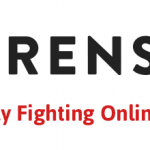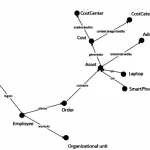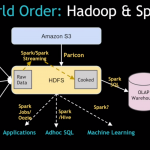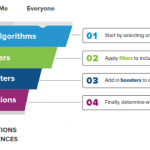Facebook, Microsoft Create Model To Give Developers More Flexibility
Facebook, Microsoft Create Model To Give Developers More Flexibility
by Gavin O’Malley @mp_gavin, September 8, 2017
Currying favor with the AI developer community, Facebook and Microsoft are jointly offering a standard format for representing deep learning models.

The Open Neural Network Exchange — or ONNX — should give developers more creative flexibility by offering a shared model representation across different programming frameworks.
Facebook has long distinguished between its two AI teams — Facebook AI Research (FAIR) and Applied Machine Learning (AML) — as well as learning models like PyTorch and Caffe2.
“With ONNX, we can get the best of both worlds,” Joaquin Quinonero Candela, director of Applied Machine Learning at Facebook, notes in a new blog post.
Different frameworks offer different interfaces with which developers can construct and run computation graphs. Each has its own format for representing these graphs. Attempting to solve this problem, ONNX is aiming for framework interoperability, according to Eric Boyd, vice president of AI data and infrastructure at Microsoft.
“Each framework is optimized for specific characteristics, such as fast training, supporting flexible network architectures [or] inferencing on mobile devices,” Boyd explains in a separate blog post. “Frameworks that use the ONNX representation simplify this and enable developers to be more agile.”
Of course, the partnership doesn’t mean that Microsoft and Facebook will stop competing on the AI front.
To that end, Microsoft recently formed a special AI research unit based at its Redmond, Washington, headquarters. At launch, the Microsoft Research AI boasted a team of more than 100 scientists working on AI from across areas such as natural-language processing and learning. For the software giant, broad areas of interest include healthcare, the environment and education.
Among other experiments, Facebook has recently been busy baking AI into M — Messenger’s AI-powered assistant. Since launching in April, M has been popping into users’ active conversations and suggesting what it “thinks” are relevant content and actions.
If it determines that a conversation is light, for instance, M might recommend a few funny stickers to share with friends. If money is being discussed, M might suggest options for sending and receiving funds. If the subject of travel arises, M could suggest sharing one’s geographic location.
Over time, M is becoming increasingly “personalized,” Kemal El Moujahid, a Messenger product manager at Facebook, said earlier this year.
MediaPost.com: Search Marketing Daily
(47)













